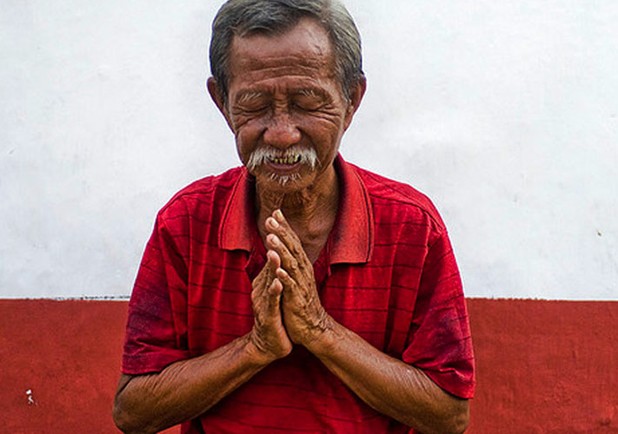Religion Linked to Happiness in Poorer Societies
When measuring religion’s influence on personal happiness, what seems most important, say researchers at the University of Illinois, is the stressfulness of the society.
While previous studies of Americans had found that people with religion are happier than their secular counterparts, the researchers wanted to know:
- Whether the circumstances of a person’s society have any influence on the happiness effects of religion
- If religion makes people happier, why are people in economically developed regions of the world abandoning religion in record numbers?
To find out, they examined data from the 2005 to 2009 Gallup World Poll of people from more than 150 countries, which asked questions on religious feelings, life satisfaction, happiness, respect and negative and positive feelings.
The Results:
- Religion does make people happier if they are living in difficult or stressful environments, such as societies with scarce food, employment, education options, healthcare and security
- People living in richer societies with more social support were about equally happy, whether they defined themselves as religious or not
- In America, people in poorer states with less social support are the most religious, and religious people in these states do tend to have greater happiness than their secular neighbors.
- In America, Mississippi had the greatest religious participation, with 88% of people saying religion was important. Vermont had the lowest religious participation, which had only 44% calling themselves religious
- Globally, 68% of people call themselves religious
Commenting on the results, lead study author Ed Deiner said, “Circumstances predict religiousness. Difficult circumstances lead more strongly to people being religious. And in religious societies and in difficult circumstances, religious people are happier than nonreligious people. But in nonreligious societies or more benign societies where many people's needs are met, religious people aren't happier -- everyone's happier."
The full study results can be read in the Aug 1st edition of the Journal of Personality and Social Psychology.
Post a comment 0
Copyright Notice
We welcome republishing of our content on condition that you credit Choose Help and the respective authors. This article is licensed under a Creative Commons License.

 John Lee
John Lee
